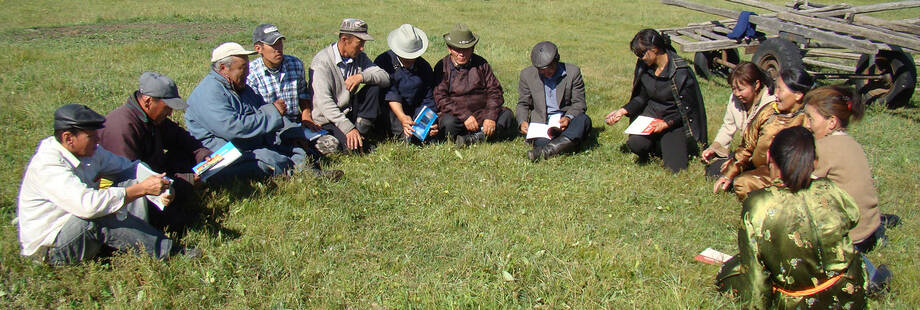Tenure of Land, Fisheries and Forests
Equitable access to land and tenure security are fundamental to achieve sustainable food systems transformation, and consequently, to the overall achievement of the SDGs.
Supporting responsible governance of tenure to achieve food security.
Responsible governance of tenure is critical to eradicate food insecurity, allowing families to invest in sustainable production.
FAO played a lead role in developing the Voluntary Guidelines on the Responsible Governance of Tenure of Land, Fisheries and Forests in the Context of National Food Security (VGGT) in 2012. Since then, FAO and partners have raised awareness and developed strategies, policies and legislation to improve tenure systems.
FAO currently supports 30 multi-stakeholder platforms (MSPs) in 16 countries, promoting participatory decision-making on governance of tenure and natural resource management. With women remaining excluded from decision-making in many countries, MSPs have contributed to empowering these women in decision-making processes while improving access to land.
Key policy messages
· Ensuring safe and nutritious food for everyone depends greatly on local food production. There is a multifaceted nexus between food production and tenure security. Without tenure security, small-scale farmers, agri-entrepreneurs and the rural poor will continue toface difficulties to invest in long-term projects . Tenure security can lead to increased investment: it allows people to access financial services and provides the space for autonomous decisions on household resources, including what to harvest and how to produce food.
· Land rights are key for rural households to balance their capabilities,assets and to determine their production strategies, including the use of natural resources at their disposal. The way in which land, water, and forests are used is related to the type of access farmers have to those resources.
· Access to land and tenure security to ensure access to safe and nutritious food is strongly related to gender issues. Not only are women generally responsible for home consumption, they are often also the most engaged in food-related agricultural production; as such, tenure security for women is of the utmost importance. Moreover, tenure security and control of land has a positive effect on women’s empowerment, from a financial, economic and social perspective.
· Given the importance of land in food production and the key role that production plays for rural households’ individual consumption and incomes, strategies to reduce poverty benefit from secure and equitable access to land. Tenure security can be seen as a means to guarantee food security and livelihoods, particularly for households straddling multiple sources of income. As land ownership continues to play an important part in maintaining food security and avoiding extreme poverty, tenure security should be seen as an integral component of both social protection and agricultural policies.
· When people have secure access to and control over land and related resources, they are motivated to invest and can potentially reap multiple benefits inthe long term. Secure access to land and natural resources also fosters rural people’s ability to adopt more sustainable agricultural practices: these can improve the ecological equilibrium and mitigate the effects of the climate crisis.
· Overall, secure land tenure for the rural poor is key to delivering the Sustainable Development Goals (SDGs) 1 and 2 (eradicate poverty and hunger). Governance of Tenure also contributes to SDGs 5, 10, 16 and 17 (gender inequality; reduced inequities; peace, justice and strong institutions; partnerships for the Goals), to ensure that no one is left behind. Effective and inclusive governance of tenure contributes to ensuring that smallholders can gain access to natural resources, be it land, fisheries or forests.
Featured resources
.jpg)
Case study
Lessons learned from the introduction of land consolidation in North Macedonia during 2014–2023
.jpg)


Case study
Multi-stakeholder platforms. Inclusive partnerships, from smallholder farmers to parliamentarians


Issue paper
Why land rights matter. Tenure rights for secure access to natural resources




